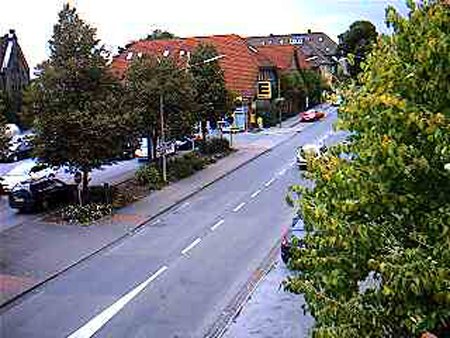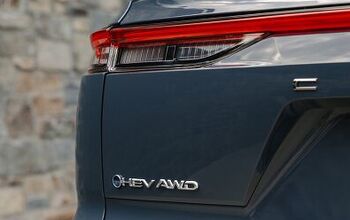German Town Removes Road Signs
TTAC scribe Stein X Leikanger previously reported on Dutch planner Hans Monderman's " shared space" traffic management philosophy, which says that removing signs and traditional barriers between cars and other road users increases safety. The Independent reports that the German town of Bohmte joins the Dutch town of Drachten as another proving ground for the controversial theory. With a European Union grant of £1.6m– who said minimalism was cheap?– the estimated 13.5k vehicles passing through the German hamlet now do so without any indication of who should go where when and how. While the scheme's backers claim shared space reduces accidents, congestion and emissions, it seems Bohmte's motivation was a little more prosaic. The town grabbed the EU cash in an attempt to reduce the number of trucks rumbling through town. Mayor Klaus Goedejohann provides the straight dope: "With our version of shared space, we hope that Bohmte will gain a reputation among lorry drivers as a town to be avoided."
More by Robert Farago


































Comments
Join the conversation
Last year an earthquake hit and all electric power was lost island-wide. From my condo I had a bird's eye view of a major intersection. Throughout the day. since I had nothing better to do, I watched the intersection looking (hoping?) for a major fender bender. Didn't happen. Drivers treated it as simply a four-way stop. Traffic flowed smoothly. Then the cops showed up some hours later to direct traffic. Laughably, traffic started to back up. There's a lesson here.
It truly is counter intuitive. I went to Drachten to see it with my own eyes. It works, and the city managers can show to unequivocable statistics. Fewer accidents, smoother flow in traffic, greater access to the city centre for pedestrians. I love James2's story, but there are lots of examples. When we try to impose order, we rarely arrive at an efficient solution, it" may be orderly but it ain't flowing" was said of a musician once. We should trust our muse more.
I went back to the original "The Road Ahead" article, through the link you supplied, Robert. There I found this: To conform to American tastes, these vehicles would have to be small on the outside, yet feel big on the inside. The Nissan Versa understands the equation. But the genre needs a premium player to overcome the stigma of ”small = cheap.” In that regard, the long-delayed SMART car is the one to watch. Originally planned as an EV city runner, the Smart cars now sip gasoline. Don’t be surprised to see the platform get new drivetrains as DCX reaches for profit opportunity. Well, London is to be the testing ground for the new SmartFortwo. http://www.whatcar.com/news-article.aspx?NA=226488
The concept is intruiging because it promises to re-humanize driving. Instead of obeying trafic lights and signs, one is forced to be a person, creating eye contact and observing the other guys's personal space. Thus, the Shared Spaces approach can make driving more enjoyable. You have to stay alert and go with the flow. And it works! As Stein has reported, traffic accidents decrease when Shared Spaces is implemented correctly. New pilot projects are being started on a monthly basis. Bohmte is last week's news; this week it's Fürstenberg an der Havel, in Eastern Germany. But there are a good half-dozen Shared Spaces projects in implementation, or being tested. This thing won't go away.